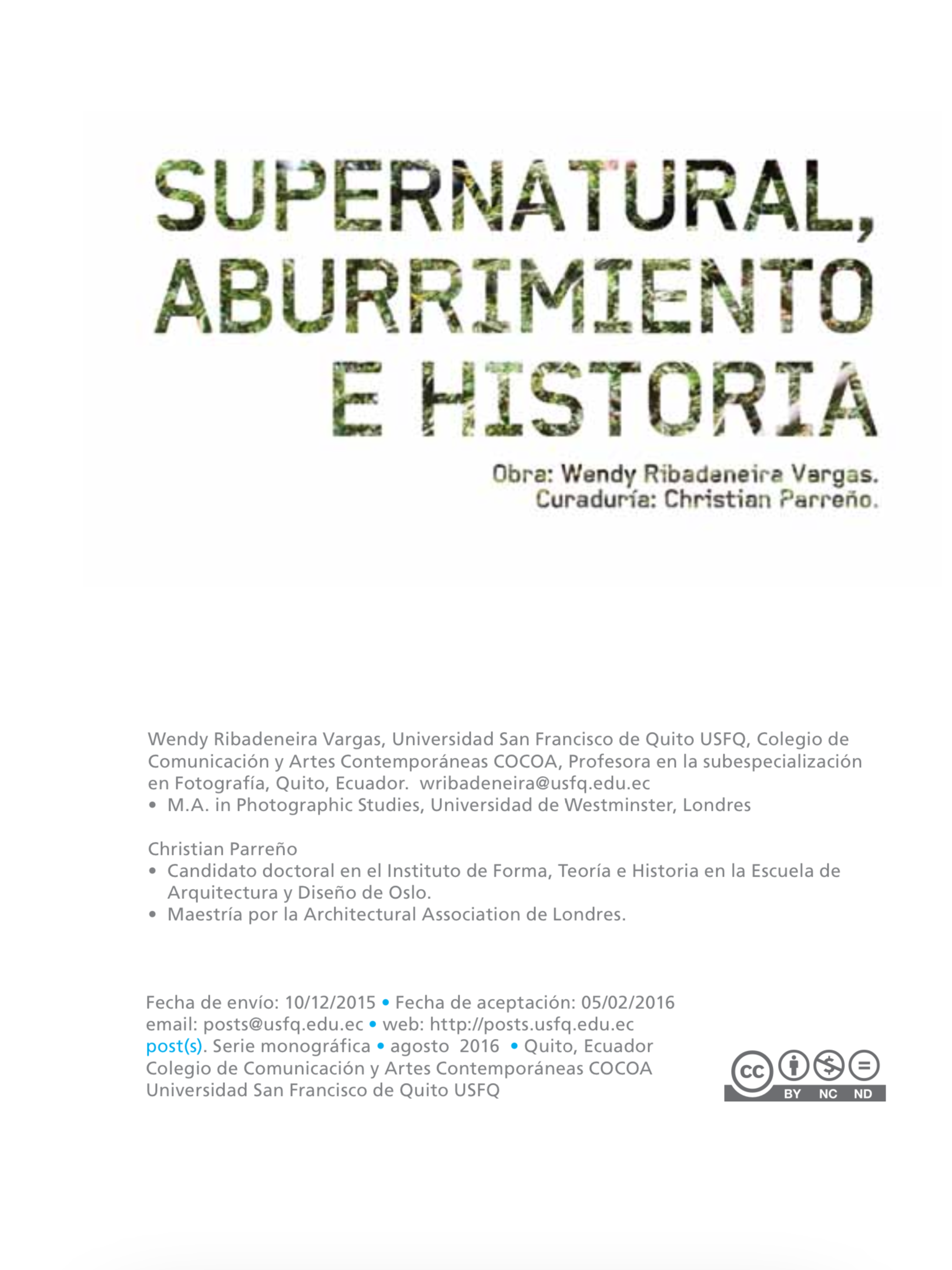Videre
Supernatural, Boredom and History

Published 2016-08-01
Keywords
- nature,
- history,
- boredom,
- landscape
How to Cite
Ribadeneira Vargas, W., & Parreño, C. (2016). Supernatural, Boredom and History . Post(s), 2(1). https://doi.org/10.18272/posts.v2i1.815
Copyright (c) 2016 Wendy Ribadeneira Vargas, Christian Parreño

This work is licensed under a Creative Commons Attribution-NonCommercial 4.0 International License.
Abstract
According to Fredric Jameson, boredom is a "useful instrument to explore the past, and to establish an encounter with the present" (Jameson, 1991, p. 303). That is, in the study of history, what has been forgotten is as significant as what is preserved and made official as memory. By exhausting the famous - satiety with the classics -, space was given to what he did not qualify for posterity because at the time of his estimation it was perceived as irrelevant.
Downloads
Download data is not yet available.
References
- Benjamin, Andrew (2005). "Boredom and Distraction: The Moods of Modernity". En Andrew Benjamin (editor). Walter Benjamin and History. London: Continuum.
- Benjamin, Walter (2002). The Arcades Project. Traducido por Rolf Tiedeman. Cambridge: Belknap. 1940.
- Cioran, Emil (1995). Tears and Saints. Traducido por Ilinca Zarifopol-Johnston. Chicago: The University of Chicago Press. 1937.
- Highmore, Ben (2002). Everyday Life and Cultural Theory: An Introduction. London: Routledge.
- Jameson, Fredric (1991). Postmodernism, or, the Cultural Logic of Late Capitalism. London: Verso.
- Parreño, Christian (2013). "Aburrimiento y espacio: experiencia, modernidad e historia". RevistArquis, No. 1.
- Petro, Patrice (2002). Aftershocks of the New: Feminism and Film History. New Brunswick: Rutgers University Press.
